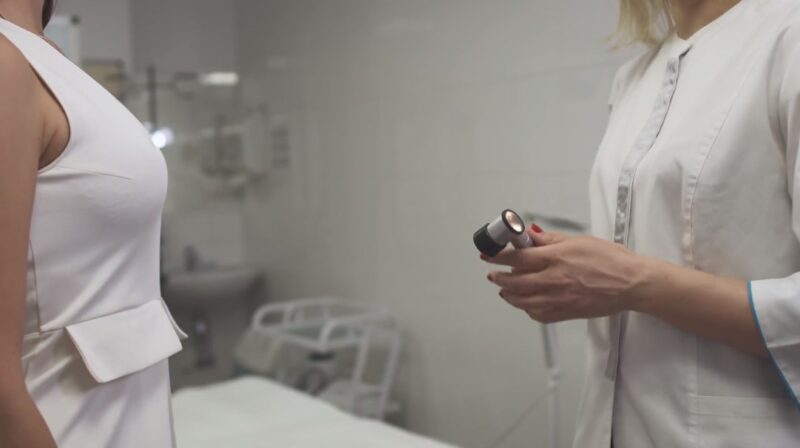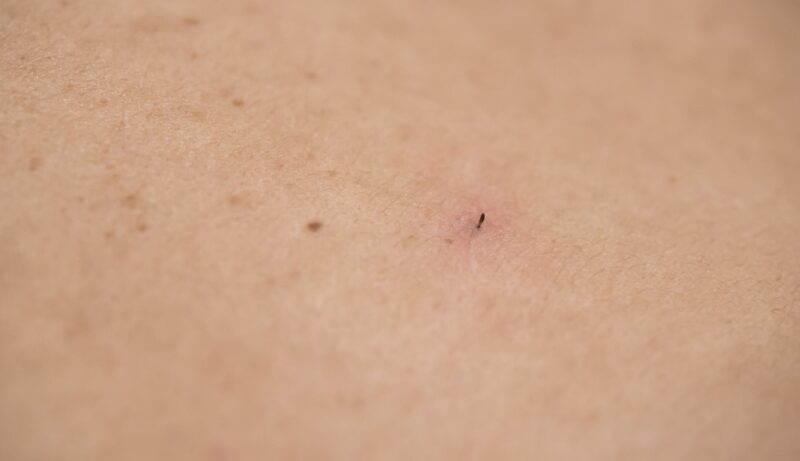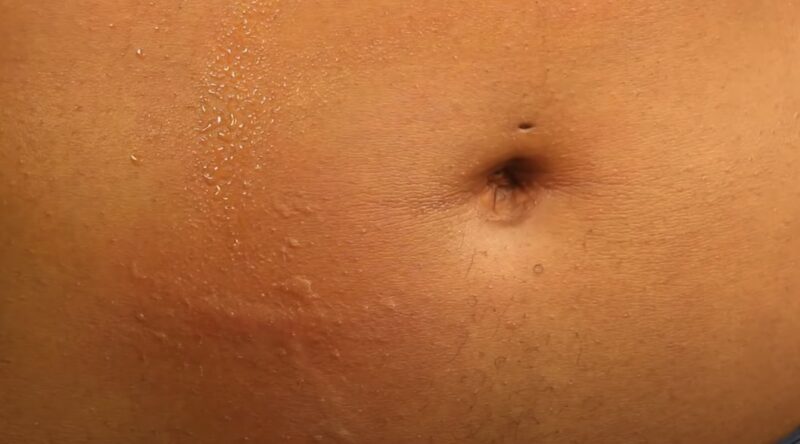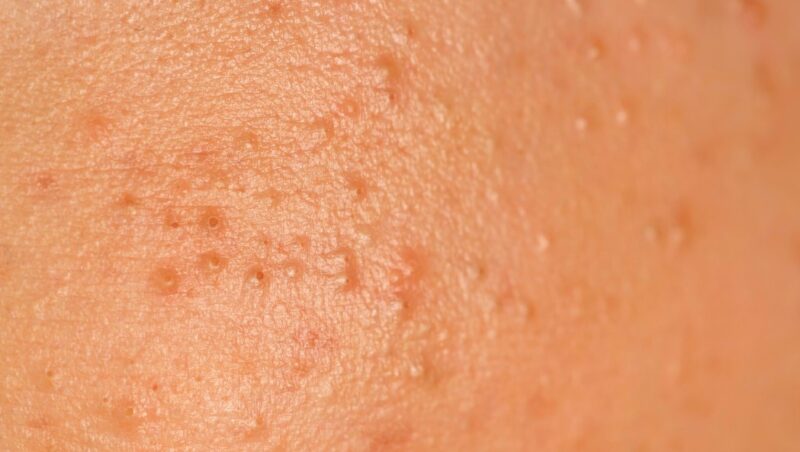Acne, a common skin condition, often manifests on the face, back, and chest. However, it can also emerge in less typical areas, such as the abdomen. This occurrence, while not as widely discussed, presents unique challenges and considerations. Identifying this condition involves observing specific characteristics.
The blemishes typically appear as raised, red spots that may be tender to the touch. Unlike facial acne, these spots can be more spread out and vary in size. It’s crucial to differentiate them from other skin conditions, such as heat rashes or allergic reactions, to ensure appropriate treatment. Recognizing these signs is the first step towards effective management and treatment.
What Is the Best Treatment?
Addressing acne on the abdomen requires a tailored approach, considering the unique aspects of this skin area. Various treatment methods, ranging from medical interventions to home remedies, offer relief and improvement.
Medical Treatments
Medical interventions are often necessary for persistent or severe cases. These treatments target the underlying causes and provide significant relief.
| Treatment Type | Description | Usage |
|---|---|---|
| Topical Creams | Creams containing benzoyl peroxide or salicylic acid | Applied directly to affected areas to reduce inflammation and clear clogged pores |
| Oral Antibiotics | Antibiotics like tetracycline or erythromycin | Prescribed for reducing bacteria and inflammation |
| Hormonal Therapy | Birth control pills or other hormone-regulating medications | Used particularly in cases where hormonal imbalances contribute to acne |
These treatments should be pursued under medical guidance to ensure suitability and effectiveness.
Home Remedies and Lifestyle Changes
In addition to medical treatments, home remedies and lifestyle adjustments can be beneficial. These methods focus on reducing irritation and preventing future outbreaks. They can help with other issues as well, such as for Dry Skin Pimples.
| Remedy/Change | Description | Benefits |
|---|---|---|
| Natural Topicals | Aloe vera, tea tree oil, and honey | Soothe the skin and possess anti-inflammatory properties |
| Hygiene Practices | Regular washing with a gentle cleanser | Keeps the area clean and reduces the risk of clogged pores |
| Dietary Adjustments | Reducing dairy and high-glycemic foods | Minimizes inflammation and hormonal fluctuations |
Incorporating these practices into daily routines can significantly aid in managing and preventing many health problems.
How to Prevent Stomach Acne?

Effective prevention not only reduces the frequency of outbreaks but also mitigates the severity when they do occur. This proactive approach involves a combination of skincare practices, dietary adjustments, and overall lifestyle changes.
Skincare and Hygiene
Effective skincare and hygiene are paramount in preventing abdominal acne. A daily routine should include gentle cleansing to remove excess oil and dirt without stripping the skin of its natural moisture. This is particularly important for sensitive areas like the stomach, where the skin can be prone to irritation.
Gentle exfoliation, done periodically, can help in removing dead skin cells, preventing clogged pores which often lead to acne. However, it’s crucial to avoid harsh scrubs or over-exfoliation, as these can aggravate the skin and exacerbate the problem. Equally important is the choice of clothing.
Tight-fitting clothes, especially those made from non-breathable materials, can trap sweat and bacteria against the skin, creating an ideal environment for acne to flourish. Opting for loose, breathable fabrics can significantly reduce this risk. Additionally, showering after excessive sweating, such as post-exercise, helps keep the skin clean and free from potential irritants.
Diet and Digestive Health

The connection between diet, digestive health, and skin condition is increasingly recognized. A balanced diet rich in fruits, vegetables, lean proteins, and whole grains provides essential nutrients that promote skin health. Foods high in antioxidants, like berries and leafy greens, can help combat inflammation, a key factor in acne development.
Hydration plays a critical role in maintaining skin health. Drinking adequate water helps in detoxifying the body and keeping the skin hydrated, which is essential for preventing dryness and the subsequent overproduction of oil, a common acne trigger. Reducing the intake of high-glycemic foods, dairy products, and processed items can also have a positive impact, as these foods are often linked to increased inflammation and hormonal imbalances that can trigger acne.
Stress Management and Exercise
Stress is a well-known trigger for acne. It stimulates the production of hormones like cortisol, which can increase oil production in the skin, leading to breakouts. Engaging in stress-reducing activities such as yoga, meditation, or even regular exercise can help manage stress levels, thereby reducing the likelihood of acne.
Regular exercise not only aids in stress reduction but also improves blood circulation, which is beneficial for skin health. However, it’s important to cleanse the skin after sweating to prevent the pores from becoming clogged with sweat and bacteria.
When to Seek Professional Help?

While many cases of acne on the abdomen can be managed with home care and over-the-counter treatments, there are situations where professional medical advice is necessary. Understanding when to seek help from a healthcare provider is crucial for effective treatment and to prevent potential complications.
Signs That You Need Medical Attention
Certain symptoms indicate that a doctor’s consultation is warranted. If the acne is persistent and does not respond to standard treatments, it could be a sign of an underlying condition that requires medical intervention. Severe cases, characterized by large, painful, or cystic acne, can lead to scarring and should be evaluated by a professional.
Another reason is that the red spot you suddenly got on the stomach may be a condition similar to this one. The Curology Team says that:
“If you develop a sudden and itchy acne breakout on your stomach and you notice the spots have a red ring around them, it’s possible that you may have folliculitis.”
Additionally, if the affected area shows signs of infection, such as excessive redness, swelling, pain, or discharge, immediate medical attention is necessary. It’s also important to consider professional help if the acne significantly impacts your quality of life.
Skin conditions can affect self-esteem and mental health, and a healthcare provider can offer both physical and emotional support. Dermatologists, in particular, are equipped to provide specialized care for skin-related issues.
Consulting with Dermatologists

A dermatologist is a medical doctor who specializes in treating skin, hair, and nail disorders. During a consultation, they will assess your skin condition, discuss your medical history, and possibly conduct tests to determine the underlying causes of your acne.
Based on this evaluation, they can provide a tailored treatment plan which may include prescription-strength topical treatments, oral medications, or other therapies like chemical peels or laser treatment. Dermatologists can also offer advice on skincare routines and products that are suitable for your skin type and condition.
They can guide you on how to effectively manage your acne while minimizing side effects and preventing future outbreaks. In some cases, they might collaborate with other healthcare professionals, such as endocrinologists or nutritionists, to address hormonal imbalances or dietary factors contributing to your acne.
Common Myths and Misconceptions

Relying on myths is a common issue and a mistake a lot of people are making. Therefore, instead of listening to someone without any knowledge and experience, or following instructions form unknown sources can only make things worse. For example, a common myth is that acne is caused solely by poor hygiene.
While cleanliness is important, acne, particularly on the stomach, can be influenced by a wide range of factors including genetics, hormones, and diet. Over-cleansing or using harsh products can actually aggravate the skin and worsen acne. Another common one is that sun exposure can clear up acne. While a moderate amount of sunlight can be beneficial for overall health, too much sun exposure can lead to skin damage and increase the risk of skin cancer.
It can also cause the skin to produce more sebum, potentially worsening acne in the long run. There’s also a belief that popping pimples will make them go away faster. This practice can push bacteria deeper into the skin, causing more inflammation and even scarring. It’s always better to treat acne with appropriate medications and let them heal naturally.
The idea that acne is only a teenage problem is another myth. In reality, acne can affect individuals of any age, including adults. Hormonal changes, stress, and certain medications are just a few factors that can cause acne in adults. With the abundance of information available, it’s important to rely on trusted sources for acne-related advice. Dermatologists and healthcare professionals are the most reliable sources. They can provide evidence-based recommendations tailored to individual skin types and conditions.
FAQs
Can certain types of clothing cause stomach acne?
Yes, tight-fitting clothing made from non-breathable materials can trap sweat and bacteria against the skin, creating an environment conducive to acne. Opting for loose, breathable fabrics can help reduce the risk.
Is it possible for stomach acne to be a sign of an allergic reaction?
Yes, in some cases, what appears to be acne on the stomach could be an allergic reaction to products like laundry detergents, body lotions, or fabrics. If you suspect an allergy, it’s advisable to consult a dermatologist.
Can stomach acne be linked to hormonal changes in the body?
Yes, hormonal fluctuations, particularly those related to menstrual cycles, pregnancy, or certain medications, can trigger acne on various body parts, including the stomach.
Are there specific dietary changes that can help reduce stomach acne?
While there’s no one-size-fits-all diet for preventing acne, reducing the intake of high-glycemic foods, dairy products, and processed foods can help. These foods are often linked to increased inflammation and hormonal imbalances that can trigger acne.
How does stress affect stomach acne?
Stress can exacerbate acne by increasing the production of hormones like cortisol, which can lead to an increase in oil production in the skin. Managing stress through relaxation techniques, exercise, or other methods can help reduce acne flare-ups.
Last Words
It’s essential to recognize the various factors that contribute to its development, including hygiene practices, diet, stress, and hormonal imbalances. While home remedies and over-the-counter treatments can be effective for mild cases, it’s crucial to seek professional medical advice for persistent or severe conditions.

